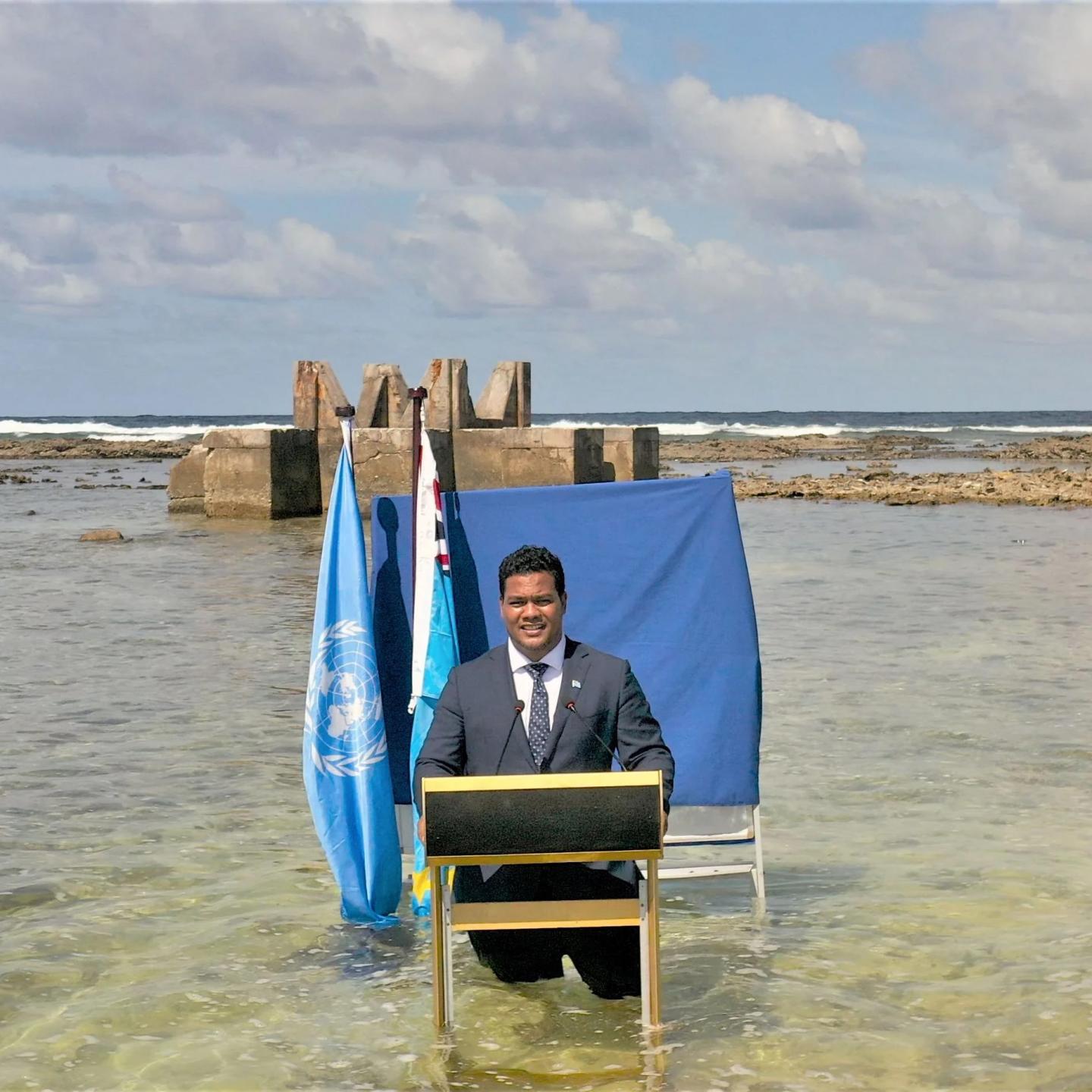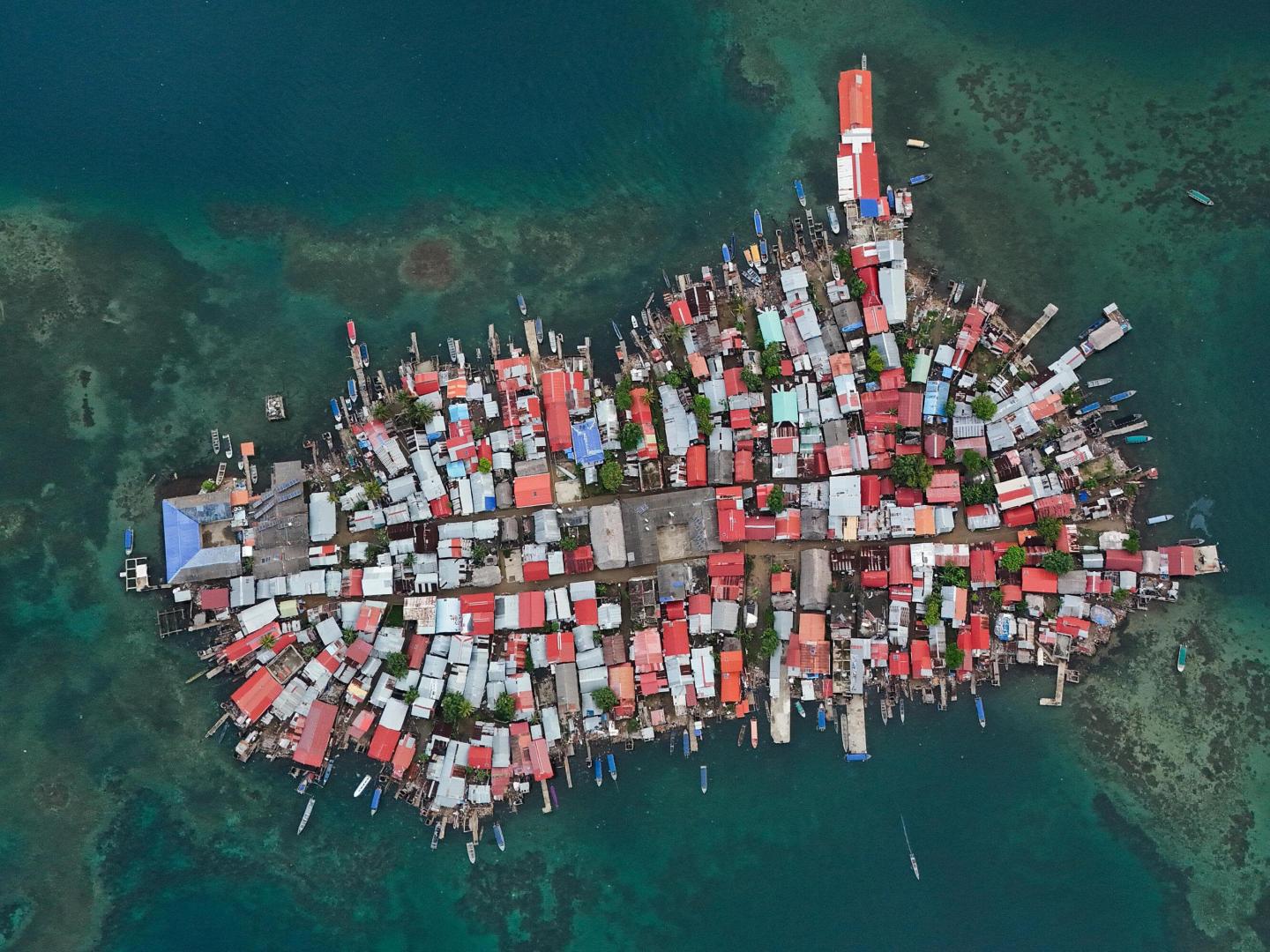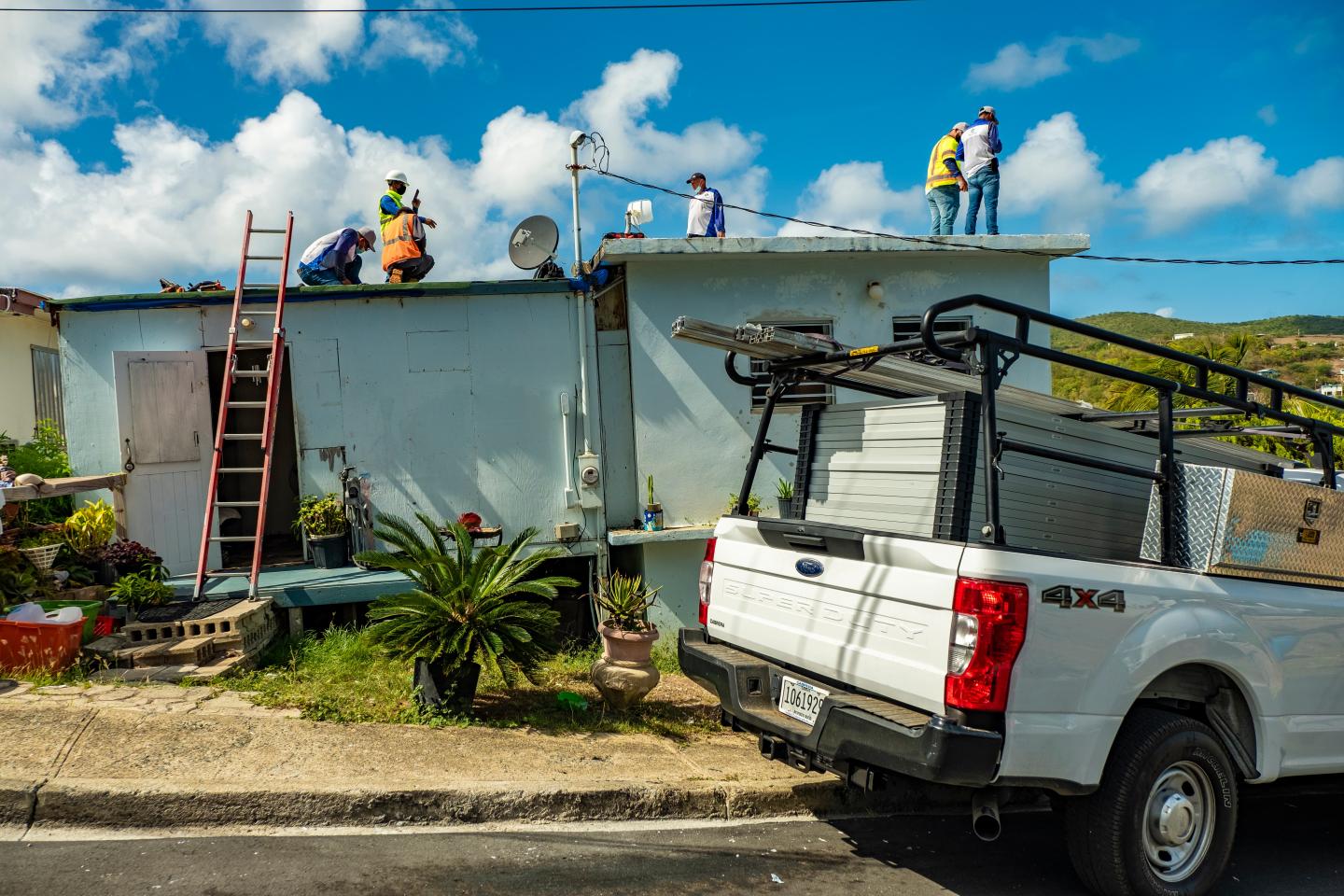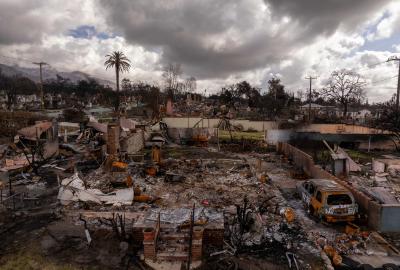Rising seas, raising voices
“We will not stand idly by as the water rises around us.” Leaders of island nations speak out as climate change takes aim at their countries.
In November 2021, the foreign minister of the Pacific island nation of Tuvalu, Simon Kofe, stood knee-deep in seawater and recorded a video message for delegates attending the United Nations COP26 global climate summit in Glasgow, Scotland.

The intention, said Kofe, was to demonstrate the reality of rising seas for island nations on the frontlines of the climate crisis. “We will not stand idly by as the water rises around us,” he said. “We are mobilizing collective action at home, in our region and on the international stage, to secure our future.”
“Rather than resigning ourselves to being wiped out," says Kate Brown, a Māori New Zealander who directs the Global Island Partnership, which seeks to enable islanders to build sustainable communities. "We are demonstrating the power of coming together to build resilience.”
Islands are on the front lines of climate change
Island nations and territories often experience the destructive effects of global warming — rising seas, stronger storms, more intense heat waves — well before land-locked regions. In the Atlantic Ocean, the proportion of storms that become major hurricanes (Category 3 or above) has doubled since 1980. These storms regularly devastate electric grids, disrupt food supplies and damage crops.

“In countries where there is low income and high debt, a major hurricane can wipe out 200% of their GDP in a single day,” says Zach Cohen, an analyst with Environmental Defense Fund’s Global Engagement and Partnerships team. “These countries have contributed virtually nothing to the warming that is making these storms more powerful. How we respond is a question of climate justice.”
Members of the Alliance of Small Island States, including Tuvalu, are calling for an end to fossil fuel expansion and measures that will provide affordable financing to make their communities safer when big storms hit.
It’s vital — and deeply complicated — work, as evidenced by the fraught negotiations at COP29 that ended in disappointment for many nations when the new finance target of $300 billion per year by 2030 fell short of what experts say is needed to help vulnerable nations fight the climate crisis.
From blackouts to breakthroughs
The small island community of Culebra is often the first place hit by hurricanes that ravage Puerto Rico. In 2017, residents got a one-two punch when Irma and then Maria left Culebra’s 1,700 residents without power for months.

EDF and local partners teamed up to install solar power to serve low- and moderate-income households. Backed by battery storage and intelligent software, the system can help Culebra keep the lights on when storms hit.
Photovoltaic cells now power 10% of the homes in Culebra. A $6 million grant from the U.S. Department of Energy, announced in August 2024, will bring solar energy and storage systems to an additional 150 households on the island beginning in 2025 — bringing Culebra one step closer to its goal of becoming “the Caribbean’s first 100% solar island.”
Financing the fight
Elsewhere, island countries are turning to public-private partnerships and regional collaborations. Barbados is setting up a bank to finance green projects locally, and Dominica is advancing an ambitious array of projects to protect island ecosystems and infrastructure as part of its aim to be the first “climate-proof” nation. And 14 Caribbean countries have created a $150 million Caribbean Biodiversity Fund to enable reliable, long-term funding for conservation and sustainable development.
Climate change means storms are getting stronger, oceans are warming faster and the window for action is rapidly closing. Increased funding, growing awareness and supportive policies that strengthen resilience are a cause for optimism. But leaders remain clear-eyed.
“Islands have to reconcile with being the first to hit the limits of what they can adapt to,” says Brown, “but we won’t be the last. Our voices need to be listened to.”

